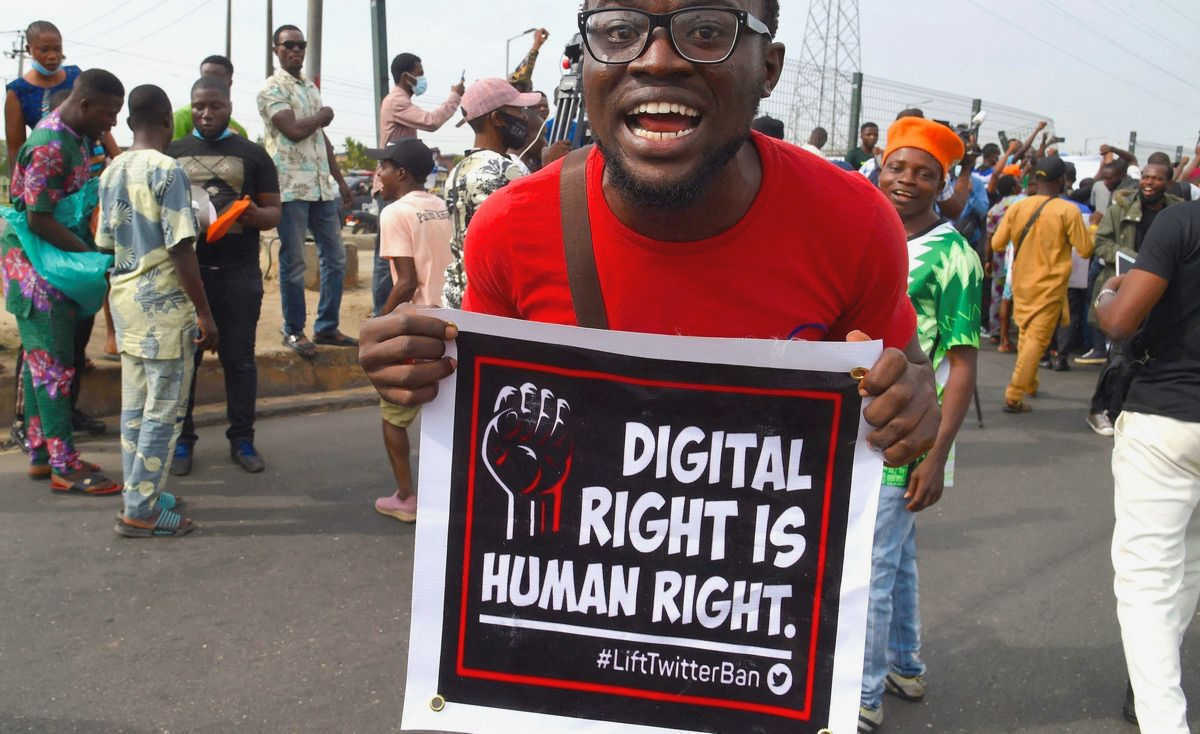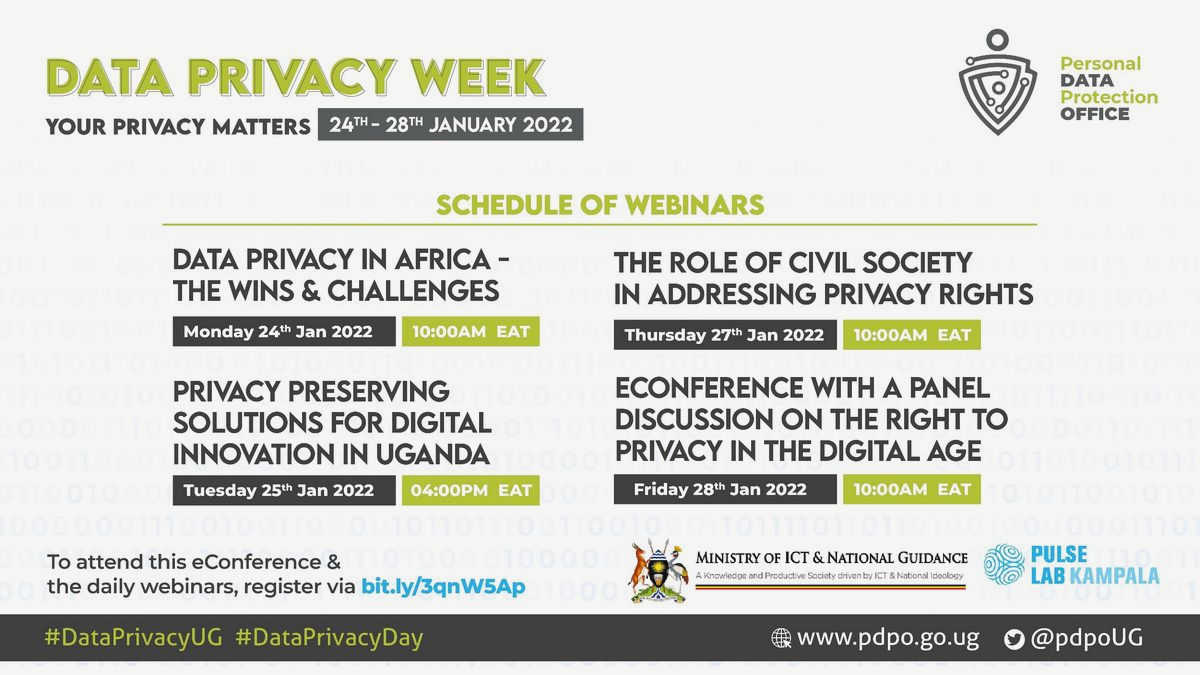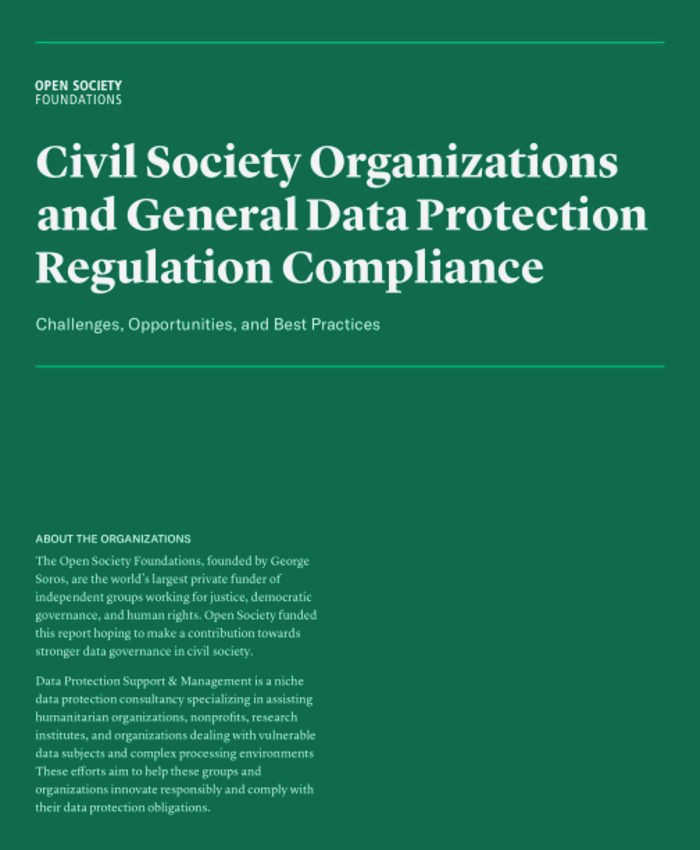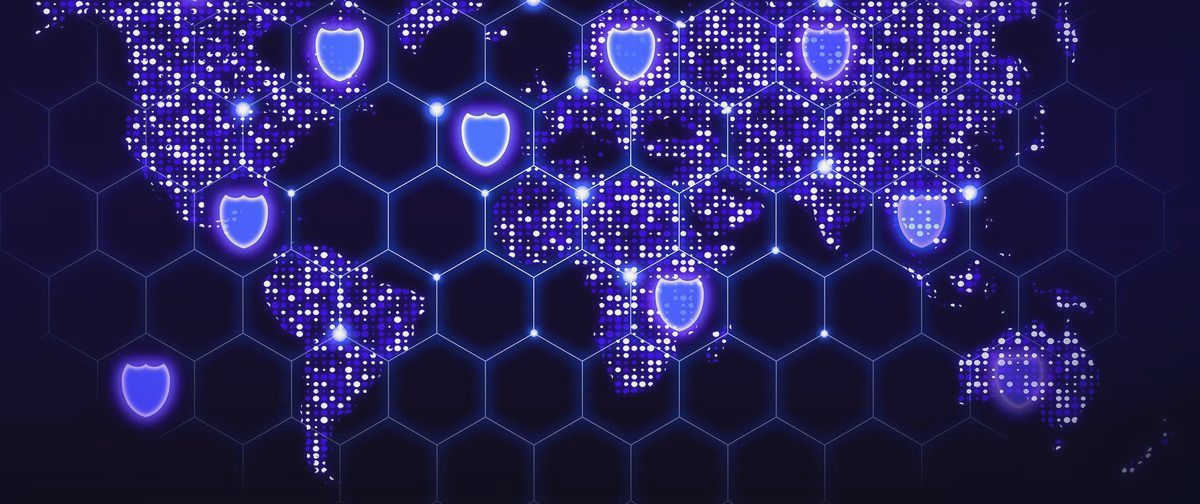In an increasingly interconnected and globalized world, the protection of civil society’s right to privacy has become a pressing issue. As technology advances and data flows freely across borders, individuals and organizations are faced with new challenges in safeguarding their personal information.
One of the main challenges is the balancing act between the need for privacy and the demand for security. While governments argue that intrusive surveillance measures are necessary to combat terrorism and other threats, civil society organizations and privacy advocates argue that these measures often infringe upon individuals’ right to privacy.
Another challenge is posed by the rise of big data and the extensive collection and analysis of personal information. With the proliferation of social media platforms, online shopping, and digital communication, individuals are constantly generating vast amounts of data. This data is often collected and used by both governments and corporations for various purposes, raising concerns about privacy and the potential for abuse.
Furthermore, the global nature of the internet and the transfer of data across borders create additional challenges in protecting privacy. Different countries have different legal frameworks and standards for data protection, which can lead to discrepancies in how personal information is handled. This becomes particularly relevant when civil society organizations operate globally and face the risk of their data being subject to less stringent privacy protections in certain jurisdictions.
In order to address these challenges, several solutions can be considered. Firstly, there is a need for robust privacy laws and regulations that ensure individuals’ right to privacy is protected. These laws should be based on internationally recognized standards and principles, providing strong safeguards against unlawful surveillance and unauthorized use of personal data.
Secondly, greater transparency and accountability are paramount. Governments and corporations should be required to disclose the extent of their data collection practices and the purposes for which the data is used. This would enable individuals to make informed decisions about their privacy and hold those responsible accountable for any misuse or abuse of personal information.
Lastly, empowering civil society organizations and privacy advocates to actively participate in policy debates and legal processes is crucial. They can push for stronger privacy protections and advocate for the rights of individuals in the face of growing surveillance and data collection practices.
Protecting civil society’s right to privacy in a globalized world is a complex and multifaceted challenge. However, by implementing robust privacy laws, promoting transparency and accountability, and empowering civil society organizations, it is possible to strike a balance between privacy and security in our interconnected world.
As technology continues to advance and our lives become increasingly dependent on digital platforms, it is imperative that we prioritize the protection of our privacy and ensure that civil society’s right to privacy is safeguarded.
Understanding Civil Society’s Right to Privacy
Civil society refers to the collective organizations and individuals functioning independently from the government and the business sector to promote social well-being and address public issues. Civil society plays a crucial role in democratic societies by advocating for human rights, social justice, and the protection of individual liberties. One of the fundamental rights that civil society enjoys is the right to privacy.
The right to privacy is enshrined in numerous international conventions and declarations, including the Universal Declaration of Human Rights and the International Covenant on Civil and Political Rights. This right entails the ability of individuals to maintain control over their personal information and to protect themselves from unwanted intrusion into their private lives, communications, and activities.
A crucial aspect of civil society’s right to privacy is the ability to carry out its activities without the fear of surveillance, monitoring, or interference by governments or other entities. This includes protection from unlawful surveillance, as well as protection from interference with confidential communications, such as phone calls, emails, and personal conversations.
Furthermore, civil society’s right to privacy also extends to the protection of its members and stakeholders. It ensures that individuals can freely associate with civil society organizations, express their opinions, and participate in social and political activities without fear of reprisal or discrimination.
In a globalized world, civil society faces numerous challenges to its right to privacy. Rapid advancements in technology and the rise of surveillance capabilities pose significant threats to civil society’s ability to operate independently and safely. Governments and other powerful entities may seek to monitor and control civil society organizations to limit their influence and limit dissent.
Protecting civil society’s right to privacy requires a multi-faceted approach. It involves advocating for strong legal frameworks that safeguard privacy rights, promoting transparency and accountability in the use of surveillance technologies, and building secure digital infrastructure and practices to protect civil society’s communications and data.
In conclusion, understanding civil society‘s right to privacy is crucial in maintaining a vibrant and empowered civil society. Upholding this right is essential to safeguarding democratic principles, ensuring freedom of association and expression, and fostering a society that respects and values individual privacy.

The Impact of Globalization on Privacy
The increasing interconnectedness of the world through globalization has had a profound impact on privacy. With the rapid advancement of technology and the growth of online platforms, individuals are now more connected than ever before. However, this has also made it easier for personal information to be accessed and shared without consent.
One of the main challenges brought by globalization is the collection and use of personal data by companies and governments. With the rise of big data analytics and the widespread adoption of social media platforms, individuals’ personal information is constantly being collected, analyzed, and shared. This poses a threat to privacy as individuals’ personal information can be used for targeted advertising, surveillance, and even for political manipulation.
Another issue is the lack of uniform privacy laws and regulations across different countries. As information flows freely across borders, it becomes difficult to enforce privacy laws and protect individuals’ rights. Different jurisdictions have different standards and approaches to privacy, making it hard to establish consistent protections for individuals worldwide.

Additionally, globalization has also led to an increase in cyber threats and online hacking. As more information is stored online and transmitted across networks, individuals and organizations are becoming targets for cybercriminals. This not only compromises privacy but also poses a risk to personal and financial security.
In order to address these challenges, international cooperation and collaboration are crucial. Governments and organizations need to work together to develop and enforce global privacy standards that protect individuals’ rights regardless of their location. Additionally, individuals need to be educated and empowered to take control of their privacy by understanding the risks, implementing strong security measures, and advocating for their rights.
Challenges to Protecting Civil Society’s Right to Privacy
The rapid advancement of technology has posed significant challenges to protecting civil society’s right to privacy in a globalized world. One challenge is the proliferation of surveillance systems and technologies, which can invade individuals’ privacy both online and offline. Governments and other entities have the capability to monitor and collect vast amounts of personal data, raising concerns about the misuse and abuse of this information.
Another challenge is the lack of clear legal frameworks and protections for privacy rights in many countries. In some jurisdictions, there may be inadequate laws or regulations in place to safeguard civil society’s right to privacy, leaving individuals vulnerable to unauthorized surveillance and data breaches. This can also hinder the ability of civil society organizations to operate freely and effectively.
The global nature of data flows presents yet another challenge. In a world where data can be easily transferred across borders, protecting civil society’s right to privacy becomes more complex. Different countries may have different privacy standards and practices, making it difficult to ensure consistent protection for individuals’ personal information.
Additionally, the rise of private sector surveillance and data collection has further complicated the issue. Many companies collect and monetize vast amounts of personal data, often without individuals’ full knowledge or consent. This creates a situation where civil society’s right to privacy is at risk not just from governments, but also from corporate entities with significant power and influence.
Lastly, the challenge of maintaining security while protecting privacy is an ongoing issue. As governments and other entities seek to prevent crime and terrorism, there is a tension between the need for surveillance and the need to protect civil society’s right to privacy. Striking the right balance between these two considerations is a complex task that requires careful thought and consideration.
In conclusion, protecting civil society’s right to privacy in a globalized world is fraught with challenges. From the proliferation of surveillance systems to the lack of clear legal frameworks, there are numerous obstacles to ensuring individuals’ privacy is safeguarded. However, with careful consideration and the implementation of appropriate policies and regulations, it is possible to overcome these challenges and protect civil society’s right to privacy.
Surveillance and Government Intrusion
Surveillance and government intrusion have become hotly debated topics in recent years. With the advancement of technology, governments around the world have gained unprecedented abilities to monitor and collect data on their citizens. This has raised concerns about the erosion of civil liberties and the right to privacy.

The use of surveillance technology, such as closed-circuit television (CCTV) cameras, facial recognition, and electronic surveillance, has become increasingly prevalent. While these technologies can provide valuable tools for maintaining public safety and preventing crime, they also raise significant privacy concerns. Citizens are left wondering if they are being watched or listened to without their knowledge or consent.
Government intrusion into civil society is particularly troubling when it comes to the collection and storage of personal data. Many countries have implemented laws that allow government agencies to access personal data held by private organizations, such as telecommunications companies or social media platforms. This raises concerns about the misuse or abuse of personal information and the potential for surveillance to be used as a tool for political control or repression.
There is a delicate balance between protecting national security and safeguarding civil liberties. Governments argue that surveillance is necessary to combat terrorism, prevent crime, and ensure public safety. However, critics argue that there must be limits on government intrusion and a robust legal framework to protect individual rights. Transparency, oversight, and accountability mechanisms are essential to ensure that surveillance programs are used judiciously and only for legitimate purposes.
The international community plays a crucial role in addressing the challenges posed by surveillance and government intrusion. Collaborative efforts to develop global norms and standards for privacy protection, as well as the sharing of best practices, can help promote a common understanding of the need for privacy safeguards. Additionally, civil society organizations and human rights defenders have a vital role in advocating for privacy rights and holding governments accountable for their actions.
Data Localization and Cross-border Data Transfers
Data localization refers to the practice of storing and processing data within the borders of a particular country. It is often implemented as a measure to protect sensitive information and ensure compliance with local data protection laws. However, data localization can have significant implications for cross-border data transfers and the global flow of information.
One of the key challenges of data localization is the impact it can have on international businesses and organizations. In an increasingly interconnected world, many companies rely on cross-border data transfers to operate efficiently and effectively. Data localization requirements can create barriers to these transfers, hindering businesses’ ability to access and share information across borders.
Another challenge is the potential fragmentation of the internet. Data localization measures can lead to the creation of isolated data silos, where information is stored and processed within individual countries. This can impede the free flow of information and hinder collaboration and innovation on a global scale. It also raises concerns about censorship and government surveillance, as local authorities may seek to control and monitor the data within their jurisdiction.
To address these challenges, there is a need for international cooperation and harmonization of data protection laws. By establishing common standards and frameworks for cross-border data transfers, countries can strike a balance between protecting privacy and enabling the global flow of information. This can be achieved through mechanisms such as data protection agreements, binding corporate rules, or the adoption of international privacy frameworks.
Furthermore, technological advancements such as encryption and anonymization can play a crucial role in safeguarding data privacy in cross-border transfers. These techniques can help protect sensitive information while allowing for the lawful and secure transfer of data between countries. Companies can also implement robust security measures and privacy-enhancing technologies to ensure compliance with data protection laws and minimize the risks associated with cross-border data transfers.
To sum up, data localization poses challenges to cross-border data transfers and the global flow of information. However, with international cooperation, the establishment of common standards, and the use of privacy-enhancing technologies, it is possible to strike a balance between protecting privacy and enabling the free transfer of data in a globalized world.
Solutions to Safeguard Civil Society’s Right to Privacy
1. Encrypting Communications: One solution to safeguard civil society’s right to privacy is to promote the use of encryption technologies. Encryption ensures that the content of communications remains protected and secure, making it difficult for unauthorized individuals or entities to access or intercept sensitive information.
2. Implementing Strong Data Protection Laws: Governments and organizations can strengthen civil society’s right to privacy by implementing robust data protection laws. These laws should establish clear guidelines for the collection, storage, and use of personal data, ensuring that individuals have control over their information and that it is not abused or used for nefarious purposes.

3. Enhancing Digital Literacy: Educating civil society members about digital privacy and security is crucial to protect their rights. By increasing digital literacy, individuals can make informed decisions about the privacy risks associated with their online activities and take necessary precautions to minimize those risks.
4. Promoting International Cooperation: Given the global nature of digital communication, solutions to safeguard civil society’s right to privacy must involve international cooperation. Governments and organizations should work together to develop and enforce international privacy standards and agreements that protect the privacy rights of individuals across borders.
5. Strengthening Oversight and Accountability: Establishing independent oversight mechanisms and ensuring accountability for privacy violations is essential to protect civil society’s right to privacy. Governments must hold themselves and other entities accountable for violating privacy laws and regulations, and civil society organizations should have the ability to challenge such violations in courts or through other legal avenues.
6. Empowering Civil Society Organizations: Supporting and empowering civil society organizations is crucial in protecting their right to privacy. Governments and other stakeholders should provide resources, training, and legal support to civil society organizations to help them navigate the complex landscape of privacy protection and ensure that their work is safeguarded from unwarranted surveillance or interference.
Strengthening Legal Protections
Protecting civil society’s right to privacy in a globalized world requires strengthening legal protections to ensure that individuals and organizations are not subject to unwarranted surveillance or intrusion. One way to achieve this is through the establishment of comprehensive privacy laws that outline clear rules and regulations for the collection, use, and storage of personal data.
These laws should require explicit consent from individuals before their personal data can be collected and processed. They should also establish strict limits on how long data can be retained and require regular audits to ensure compliance. Additionally, these laws should provide individuals with the right to access and correct their personal data, as well as the ability to request its deletion.
Transparency and Accountability
In order to strengthen legal protections, there should be a greater emphasis on transparency and accountability. This can be achieved through the requirement for organizations to provide detailed privacy policies that clearly explain how personal data will be used and shared. Organizations should also be required to regularly report on their data collection and processing practices to ensure compliance with privacy laws.
Furthermore, independent oversight bodies should be established to monitor and enforce privacy laws. These bodies should have the power to investigate complaints, impose penalties for non-compliance, and issue recommendations for improving privacy practices. By holding organizations accountable for their actions, it will help to ensure that civil society’s right to privacy is protected.
International Cooperation
Given the global nature of today’s society, strengthening legal protections for privacy requires international cooperation. Countries should work together to harmonize privacy laws and establish common standards for the protection of personal data. This will help to prevent gaps and inconsistencies in privacy regulation that can be exploited by malicious actors.
International agreements and frameworks should also be developed to facilitate the sharing of information and evidence in cases involving cross-border privacy violations. This will ensure that individuals and organizations are not able to evade legal consequences by operating in jurisdictions with weaker privacy protections.

In conclusion, strengthening legal protections is crucial for protecting civil society’s right to privacy in a globalized world. Comprehensive privacy laws, transparency and accountability, and international cooperation are all essential components of a robust privacy framework.
Promoting Encryption and Data Security
In today’s globalized world, the protection of civil society’s right to privacy is more important than ever. One way to ensure this is by promoting encryption and data security.
Encryption
Encryption is the process of encoding information in a way that only authorized parties can access it. It is an essential tool in protecting the privacy of individuals and organizations. By encrypting data, it becomes much more difficult for unauthorized individuals or governments to access and misuse sensitive information.
There is a need to promote the use of encryption as a standard practice across different platforms and services. This can be done by raising awareness about the importance of encryption and providing easy-to-use encryption tools to individuals and organizations. Governments should also support and encourage the development of strong encryption algorithms.
Data Security
Data security refers to the measures and best practices put in place to protect sensitive information from unauthorized access, use, or disclosure. It involves implementing technical, administrative, and physical controls to ensure the confidentiality, integrity, and availability of data.
To promote data security, organizations should adopt robust cybersecurity policies and practices. This includes regularly updating and patching software systems, implementing strong passwords and multi-factor authentication, and conducting regular security audits and assessments.
Additionally, it is essential to educate individuals and organizations on the importance of data security and the potential risks associated with data breaches. This can be done through awareness campaigns, training programs, and the dissemination of best practices.
Overall, promoting encryption and data security is crucial in protecting civil society’s right to privacy in a globalized world. It requires collaboration between individuals, organizations, and governments to ensure that appropriate measures are in place to safeguard sensitive information.
Encouraging International Cooperation
Protecting civil society’s right to privacy in a globalized world requires international cooperation and collaboration. Governments, civil society organizations, and technology companies must work together to find common ground and develop shared strategies to safeguard privacy.
Strengthening Legal Frameworks
One way to encourage international cooperation is by strengthening legal frameworks that protect privacy rights. Countries can enact comprehensive privacy laws that align with international standards and prioritize the protection of civil society’s privacy. These laws should include provisions for data protection, user consent, transparency, and accountability.
Sharing Best Practices
By sharing best practices, countries can learn from each other’s experiences and benefit from effective privacy protection strategies. International organizations and forums, such as the United Nations and the International Conference of Data Protection and Privacy Commissioners, can facilitate the exchange of knowledge and promote global collaboration in privacy protection. This can help create a uniform approach to privacy that transcends borders.
Establishing International Agreements
International agreements and treaties can provide a framework for cooperation on privacy issues. These agreements can establish common principles and guidelines, as well as mechanisms for information sharing and joint enforcement efforts. For example, the European Union’s General Data Protection Regulation (GDPR) has served as a model for other countries and regions in developing their own privacy laws. Similar collaborations can help protect civil society’s privacy globally.
Building Technical Solutions
In addition to legal and policy measures, technical solutions can play a crucial role in protecting civil society’s right to privacy. Technology companies can develop privacy-enhancing tools and technologies, such as encryption and secure communication channels, that can help safeguard personal data from unauthorized access. Collaborative initiatives between technology companies, governments, and civil society can promote the adoption and implementation of these solutions.
In conclusion, encouraging international cooperation is essential for protecting civil society’s right to privacy in a globalized world. Strengthening legal frameworks, sharing best practices, establishing international agreements, and building technical solutions can all contribute to a more secure and privacy-respecting environment for individuals and civil society organizations worldwide.





